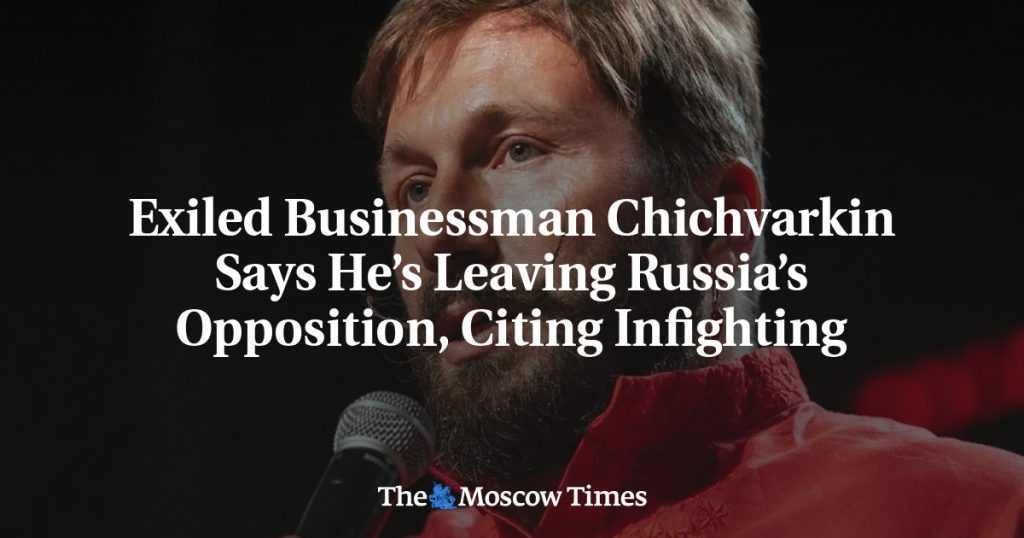Entrepreneur Yevgeny Chichvarkin, who is currently in self-imposed exile, announced that he is temporarily stepping back from Russia’s opposition due to internal disagreements among activists. He criticized the opposition for focusing on fighting each other instead of joining forces against the Russian government led by Vladimir Putin. Chichvarkin expressed his desire for his colleagues to refocus on opposing the current regime, which he described as “bloody, monstrous, and disgraceful.” The co-founder of Yevroset, a major mobile phone retailer, fled to Britain in 2008, citing fears for his safety if he were to be imprisoned in Russia on politically motivated charges of extortion and kidnapping, which were subsequently dropped in 2011.
Chichvarkin’s decision to step away from the opposition comes amidst a brewing conflict between opposition blogger Maxim Katz and Alexei Navalny’s Anti-Corruption Foundation (FBK), highlighting the ongoing fragmentation within Russia’s political opposition. Katz recently released a report accusing FBK of whitewashing the reputations of fugitive bankers Alexander Zheleznyak and Sergei Leontiev. FBK responded by denouncing Katz’s report as containing lies, manipulations, and omissions of important documents. Chichvarkin expressed his skepticism about finding a unifying figure in the opposition who can truly represent the sentiments and desires of the Russian people, particularly emphasizing that only those who have remained in Russia can truly understand its people.
In a rather unconventional move, Chichvarkin humorously suggested businessman and Instagram influencer Nikolai Vasilenko, popular for his positive affirmations and fashionable appearance, as a potential unifying figure for Russia’s fragmented opposition. Vasilenko, aged 55, gained popularity for his online content featuring well-groomed beard and luxury designer brands. Chichvarkin’s endorsement of Vasilenko reflects the challenges facing the opposition in finding a unifying leader or figurehead to rally behind. The internal divisions and disputes among various opposition factions continue to hinder their ability to present a cohesive challenge to the current leadership in Russia.
The political landscape in Russia remains complex and volatile, with internal disagreements and conflicts among opposition figures hindering their ability to present a unified front against the government. Chichvarkin’s decision to step back from the opposition underscores the challenges facing those seeking to challenge the Putin regime. As the opposition continues to grapple with internal divisions and disputes, the path to political change and reform in Russia remains elusive. Despite the efforts of activists and figures like Chichvarkin, finding common ground and uniting against the Kremlin proves to be a daunting task in a country where opposition voices face suppression and persecution.
The discord within Russia’s opposition mirrors the larger political environment in the country, characterized by restrictions on independent journalism and repression of dissenting voices. The challenges faced by media outlets like The Moscow Times, which has been labeled as “undesirable” and a “foreign agent” by Russian authorities, highlight the ongoing crackdown on free press and independent reporting in Russia. The support of readers and allies becomes crucial in sustaining independent journalism in the face of government repression and censorship. By standing together in defense of open and unbiased reporting, supporters of independent media outlets like The Moscow Times play a vital role in promoting transparency and accountability in challenging political environments like Russia.


